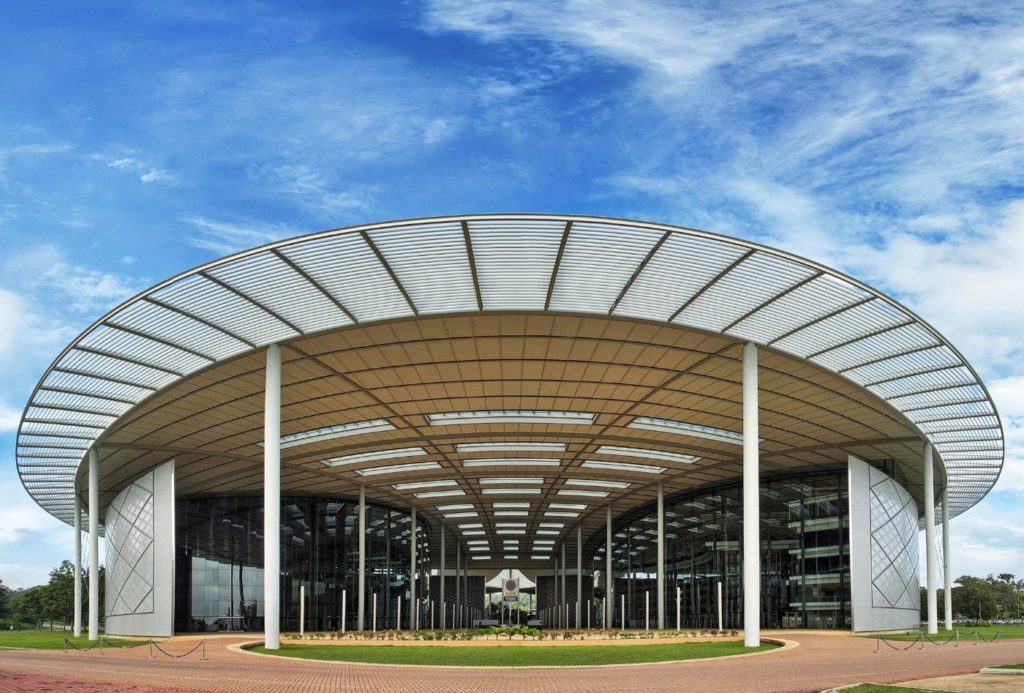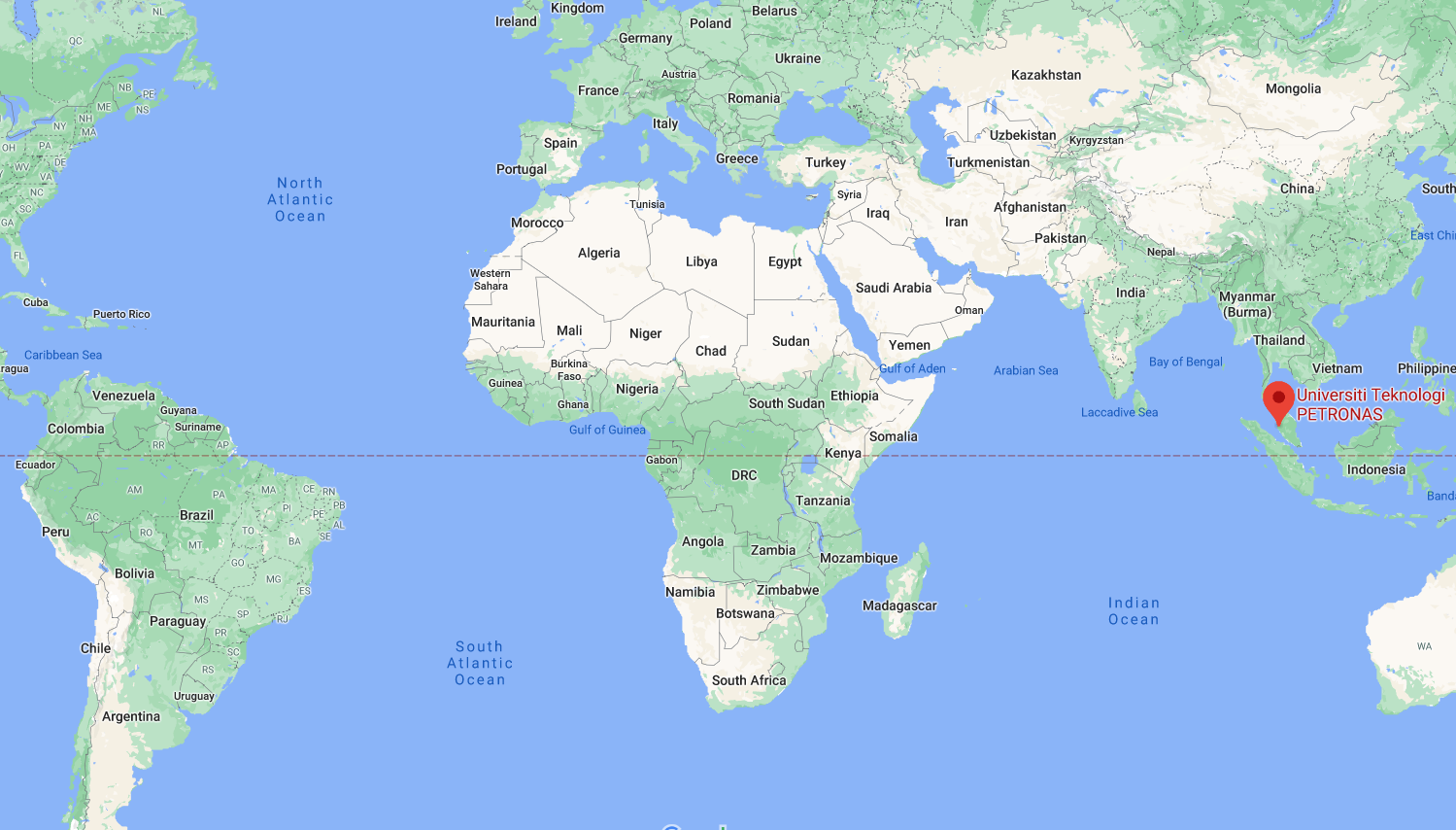Overview:
With the rise of globalized economy and advanced information and communication technologies, the engineering workplaces have become more global now than ever before. Engineers having some kind of global experience such as study abroad, international research or volunteer experiences are increasingly in greater demand. There are multiple ways students can gain international experience including study abroad, international internships, multinational project, and class activities in a course. To that end, funded by the National Science Foundation (OISE # 1952490, 1952497, & 1952493), this project provides undergraduate students from three collaborating U.S. universities with an international research and cultural experiences in Malaysia in the area of big data in energy and related infrastructure.
Collaborating Universities:
Project Goals and Objectives:
This project aims to achieve three distinct goals: 1) Increase enthusiasm and research skills of undergraduate students from underrepresented population groups who otherwise might not have an international opportunity for professional development; 2) Prepare students with professional skills to enter in a diverse and global STEM/data-savvy workforce in energy and related infrastructure industry; and 3) Foster collaboration between the faculty and students from Asian (one of the fastest growing region in the world) and American Universities.
To achieve these goals, the specific objectives of this project are to: 1) Recruit 9 undergraduate students from various engineering majors each year for three years (3/year from each of the following participating institutions: Texas A&M University, North Carolina A&T State University, and University of Nevada at Las Vegas). To broaden the participation, efforts will be to recruit over two-third students from underrepresented population groups; 2) Provide participants with a 6-week long high quality research internship experience in real world big data and machine learning projects that are energy related at a reputed international research institute in Asia; 3) Provide training and exposure to these students on global cultures and international workplaces; and 4) Use a rigorous assessment and tracking process, and evaluate the impact of proposed activities on student outcomes.
IRES Site:
The students will conduct their international research at Universiti Teknologi PETRONAS (UTP) in Perak, Malaysia.
Malaysia is the third largest economy in the ASEAN (Association of Southeast Asian Nations) group with over $350 Billion in GDP5. Figure 1 depicts the Malaysian economic activities (mainly GDP an export of goods and services) over the past several decades. Its GDP has been increasing at about 4% or more annually and has attracted a large sum of foreign direct investments each year1. According to tradingeconomics.com, Malaysia attracted annually about $13 Billion in FDI between 2008 and 2019 period2. As a result, it attracts a large number of global companies and expatriates from other countries.
| As for the IRES site, or the host university, UTP is one of the highly ranked Technical University in the Asia (# 99 in Asia in overall; and #151-200 worldwide, in Engineering, QS Stars University Ratings3). The university is a solely owned subsidiary of Petronas, the Malaysian Oil Company. The university has very strong ties with the energy and related infrastructure industry in Malaysia. The university also has large research and development facilities consisting of several laboratories dedicated to energy and environmental related research. The university houses sixteen centers of excellence covering research in materials science, oil and gas production and recovery, Nano manufacturing, biomedical, environment, advanced computing, process safety, to name a few4. In addition, it has six research institutes focusing on oil and gas industry including enhanced oil recovery and transport infrastructure for smart mobility. On the academic side, it offers both undergraduate and graduate degrees in all major disciplines of engineering. |
 Figure 1: Malaysian GDP and exports of goods & services in millions of US Dollars (Source: World Bank Data Group5) The medium of instruction is English. The IRES participants will have access to above-mentioned research labs, academic facilities, computing center, and conference rooms as necessary to conduct their research works and meetings. In addition to facilities, the faculty mentors at UTP are highly qualified scholars with strong research background on applications of big data, AI, and data analytics tools in energy industry and related infrastructure. |
Focus Research Areas: Big Data in Energy and Related Infrastructure
The advancement in data collection (e.g., sensor technologies) and computing technologies have enabled several opportunities in almost any fields (such as cyber manufacturing, smart infrastructure, smart community, etc.) that would have seemed infeasible even just a few years ago. Not only many products that we use today are increasingly becoming smarter and customized but also all the other sectors like energy infrastructure, smart communities, and built environment are rapidly adopting these technologies. The key enablers for these developments are advanced computational capabilities, big data analytics, and machine learning that allow both producers and consumers to access data in a real-time and make appropriate decisions.
As reported in U.S. Energy Information Administration’s annual energy outlook report, the US currently produces about 100 quadrillion BTU, which is expected to grow in coming years. It is possible to digitally collect and store large amount of data virtually from all level of oil and gas exploration, production, and distribution operations. The energy industry is now beginning to utilize the data analytics technologies and the companies are making large investments in this sector. Thus, it provides a strong motivation for this project to focus on big data applications in energy industry and related infrastructure.
References
- Kumar, P. (2019). Malaysia’s GDP accelerates to 4.9% growth, backing Asian trend, Nikkei Asian Review, Retrieved from https://asia.nikkei.com/Economy/Malaysia-s-GDP-accelerates-to-4.9-growth-bucking-Asian-trend (on August 21, 2019).
- Trading Economics (2019). Malaysia Foreign Direct Investment, Retrieved from https://tradingeconomics.com/malaysia/foreign-direct-investment (on Aug 22, 2019).
- QS Top Universities (2019). QS STARS University Ratings, Universiti Teknologi Petronas, Retrieved from https://www.topuniversities.com/universities/universiti-teknologi-petronas-petronas#888193 (on Sept 6, 2019).
- University Home Page (2019). Universiti Teknologi Petronas, https://www.utp.edu.my/Pages/Home.aspx
- World Bank Group (2019). World Development Data Indicators, Retrieved from https://data.worldbank.org/country/malaysia?view=chart (on Aug 21, 2019).





